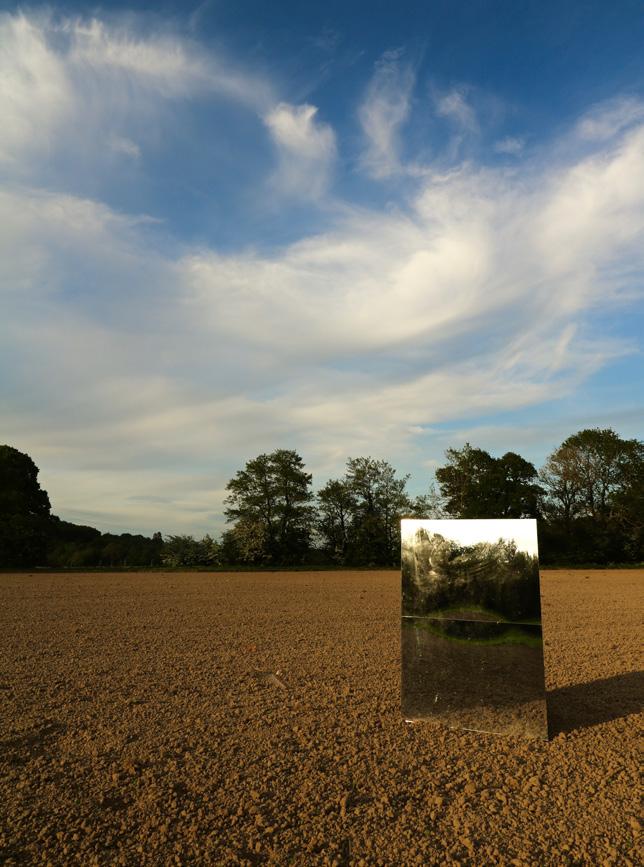
4 minute read
Is There Such a Thing as Human Nature? Taylor Colbeth
IS THERE SUCH A THING AS
Taylor Colbeth YEAR 13
Modern society tends to draw focus to all of the features that divide humans such as culture, ethnicity, nationality, etc. However, we might actually be more similar than we think. It is argued that there are fundamental characteristics that are mirrored across all humans: human nature. This extremely important question has been debated in philosophy for centuries and continues to be a key point of discussion today.
Among those who defend the concept of Human Nature, there are two views: (1) the spiritual/essentialist view that there is something essential within the essence of a human that separates it from an animal; (2) the physical/evolutionary view that humans have evolved and developed characteristics that are exclusive to our species.
The essentialist view is clearly advocated by traditional Christian dogma which presents all humans as created in the image of God, our human nature as something we are born with in our essence and not attained by any other species. The idea of Original Sin was most cogently put forth by St. Augustine of Hippo: the idea that, through Adam and Eve’s Fall, future generations were universally infected by sin, their minds corrupted. Therefore, not only is it our nature to sin, it is an individual’s responsibility to turn away from this sin and towards God, in accordance with Natural Law, in order to repair our relationship with Him. Over 1,300 years after Augustine, German philosopher Immanuel Kant secularised this this essentialist view of human nature, arguing that humans are born with an internal tension between our desires and our reason, between our animal and divine nature. Kant notes that this tension is specific to humans; animals have no concept of moral duty while divine beings have no desires, so neither feels the same tension as human beings. Kant writes that, because humans are autonomous and capable of choosing actions that are independent of our self-interest, it is our responsibility to resist our desires and use our reason. Therefore, those who consistently give in to their desires are to be considered animals, as they are not fulfilling the duty that all humans bear.
In the two centuries following Kant there has been a debate within science about human nature. Some rejected the idea of an essential human nature, separating homo sapiens from other species. However, many scientists still supported the idea that there are properties exclusively shared between all humans. Evolutionary theory helped shape a scientific argument that, over time, our species had developed characteristics that separate us from our ancestors. A central characteristic is language; no other animal can communicate with the same complexity as humans. No other animal’s brain has evolved such advanced cognitive abilities. In this sense, humans are connected and there is a discernible universal human nature.
However, some have disputed the concept of human nature.
William Blake, Elohim Creating Adam, c. 1795
Existentialist philosopher, Jean-Paul Sartre, argued that to believe in human nature is to believe that there is something within our essence that is present before we are born, which counters the existentialist premise of “existence before essence.” Sartre and others suggest that we have no fixed nature because we exist by defining ourselves in each moment, each of us radically free and radically responsible for our own actions and behaviour. Sartre maintains that the concept of “human nature” allows people to evade moral responsibility for their actions by claiming that it was ‘in their nature to do so’.
Sartre, however, does not completely reject the idea that humans are linked in some way; he believes that we do share a human condition: the fact we are all condemned to be free. Our situation is characterised by Facticity (we find ourselves in a world we did not choose, make or control), Anxiety (we lack an external source of value and must choose our own nature), and Despair (realising that we are in a world we cannot control and have complete freedom to create ourselves). Therefore, according to Sartre, while our nature is self-defined and nothing in essence is mirrored across all humans, we are all united in some way through this condition.
In the third century BC, the Stoics offered a middle ground between the idea of an essential human nature and existential autonomy. They believed in an essential human nature, but also anticipated existential philosophy in arguing that the individual can define the path that his or her life follows and so must take responsibility. The ‘facticity’ of our biology is inescapable; however, we can decide how we view and control it. While human nature affects what we can do and what we are inclined to do, we still are free and have a choice. Thus, over 2,000 years before Sartre’s birth, Stoic philosophy offered a solution to his problem of human nature removing our responsibility.
Another response to the Sartrean dilemma has been offered by psychologist Steven Pinker, who argues that our human nature is complex: while it consists of lust, selfishness, revenge, dominance, it also contains self-control, empathy, reason, and moral norms. It is our role, as an individual, to find a balance. Pinker also suggests that we can transcend aspects of our nature, arguing that violence, for example is decreasing, which suggests that human nature is not a fixed, immutable set of characteristics.
The sheer complexity of human psychology and behaviour means that there will probably never be a definite answer to the question of whether or not there are certain characteristics or properties that can be mirrored across all humans. Does “human nature” exist? Ultimately, that is up to you to determine.










